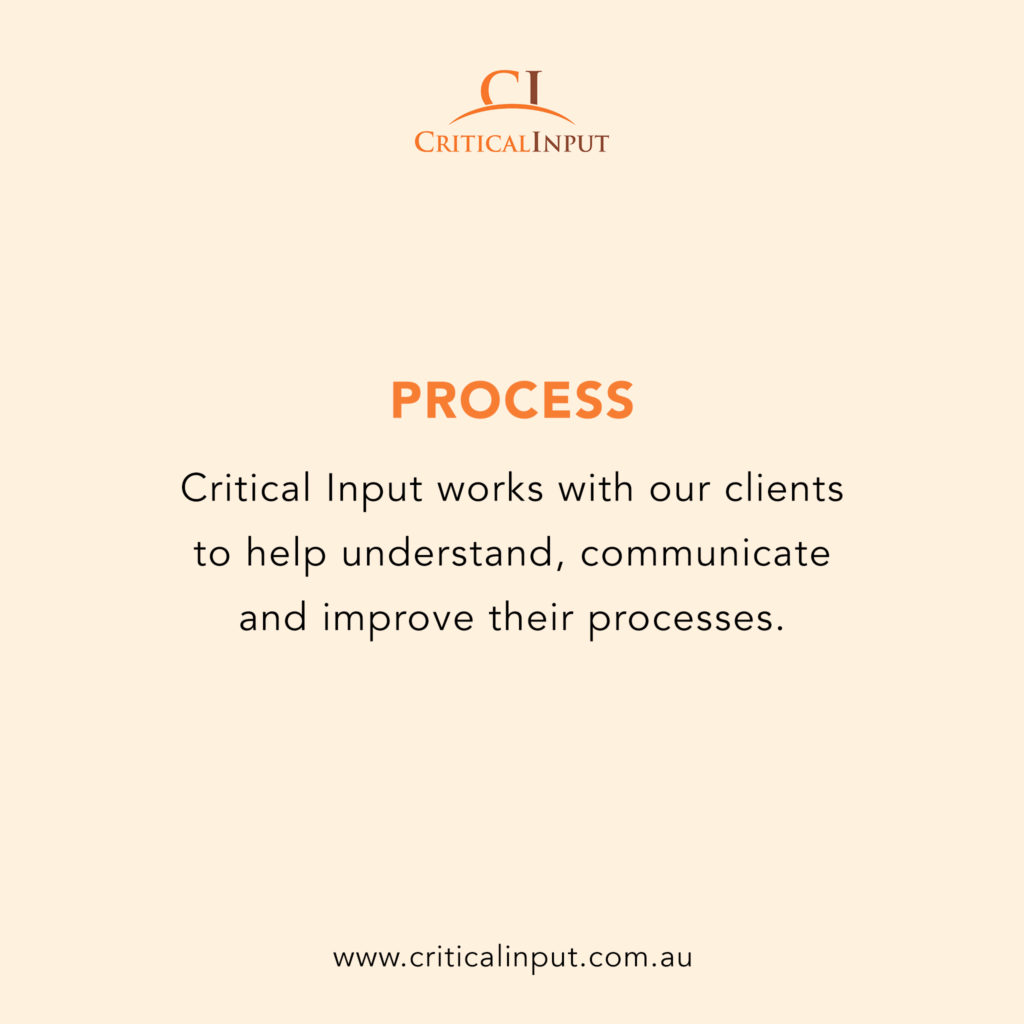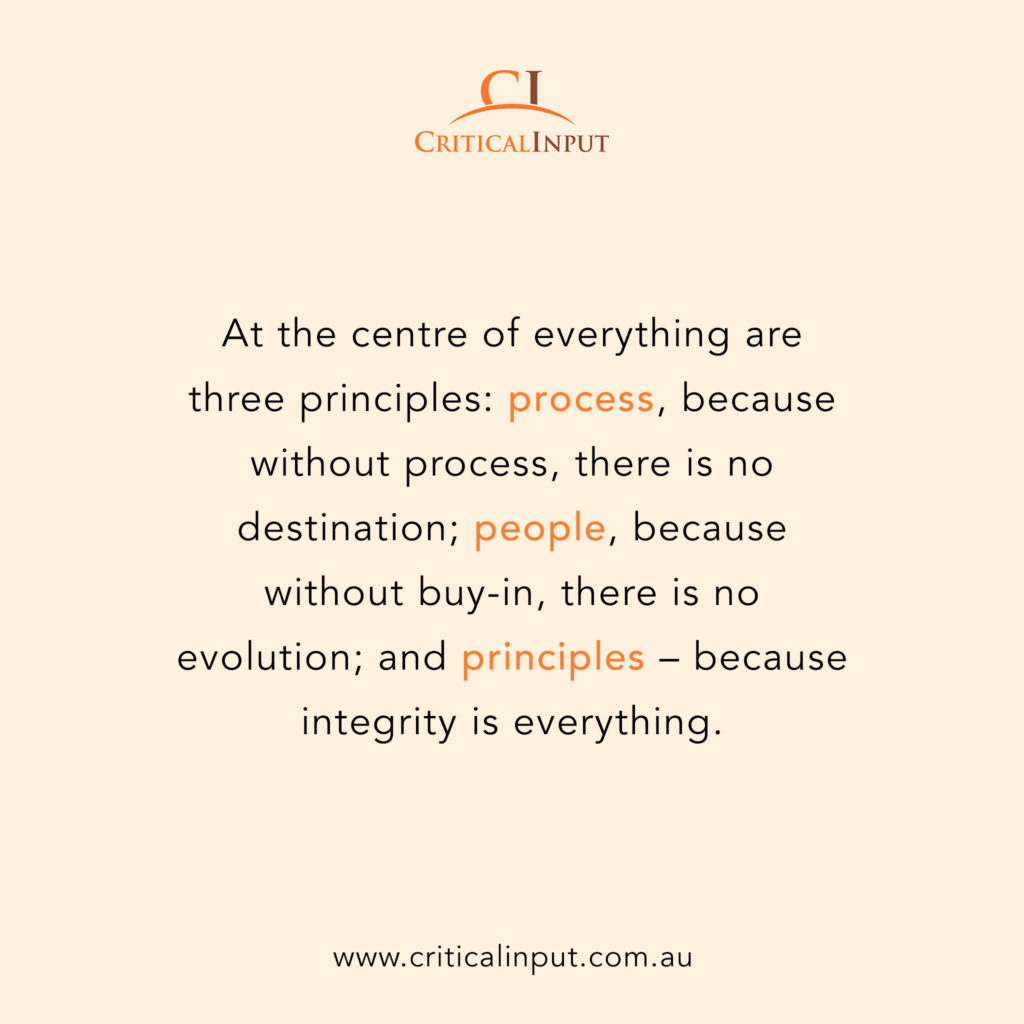Five tips for a successful negotiation
Despite the fact micro negotiations are woven into our everyday working lives, many people feel intimated by the confrontation a more formal negotiation brings. Critical Input’s Senior Consultant and supply chain expert Mark Smith has worked on large mining contracts in both Australia and overseas for more than a decade and recommends focussing on these five simple strategies to strengthen negotiation muscle. It’s all about research, planning, process, practice and strategy.

1. Know the other party
Quite often the other party will fall back onto tactics that have worked for them in the past. Knowing their tactics is the easy part. You need to do everything possible to remove their ability to employ those tactics.
If you ever think to yourself during stalled negotiations “I knew they would do this”, you must personally take on some of that blame. If you knew it was coming, it should have been dealt with within the negotiation planning phase. Research, research, research.

2. Follow a process (and stick to it)
Wouldn’t it be great if negotiations were some organic process that naturally worked their own way to a solution, and kindly took you along for the ride?
Negotiations, when untamed and unstructured, almost always grind to a screeching halt, inflicting damage along the way. Before formal negotiations commence, time must be spent developing a negotiation plan. These plans outline every little issue related to the negotiation and will help you achieve what you want. It sounds like common sense, right?
But some people, typically those with very few negotiation scars, see this planning stage as unnecessary or over the top… “We know what we want, let’s just bring them in and have a chat”. The relatively small amount of time spent developing negotiation plans and processes always pays off multiple times over.
They save time a LOT of time. It’s naive to think any negotiation will run smoothly without a formal process. Plan, plan, plan.
3. Maintain focus within your negotiation team
There are often are two negotiations happening at once – one with your opposition, and one with your internal negotiation team and stakeholders. The majority of your time should be spent on the latter.
Professionalism and a unified focus must always be displayed by your team. Your team would have helped you develop the negotiation plan. Now you must ensure the team follows it. I’m sure we have all been in one of those meetings where your own colleagues start contradicting or disagreeing amongst themselves, in front of a client/contractor. It’s definitely not a good look.
Your team members should be entering into a negotiation meeting knowing full well what the common goal is, what to do when certain issues are brought up, and the inclusions and limitations of their roles. If you invest the time managing and focusing your team beforehand, you’ll spend less time trying to steer your negotiations back on track. Practice, practice practice.
4. Know the content (back to front)
It’s important to list out every possible option or issue that may be raised during the negotiation and understand the effects of it. Crunch the numbers and know them well. Be in a position to refute claims made against you because you know all the details behind it, rather than saying, “I’ll have to look into that and get back to you”.
Understanding the content also allows you to drive the negotiations in your desired direction. If your opponent is suggesting an option that you know is less than ideal, you have the ability to nip it in the bud and move away from the suggestion immediately.

5. Avoid negotiating from a position of weakness
Negotiating, when you have little to no bargaining power, isn’t fun. You don’t want to be the hares in that Aesop’s fable who argued to the assembly that all should be equal. There will always be the lion’s to reply, “Your words are good, but they lack the claws and teeth such as we have”. It’s important to pre-empt future negotiations and always ensure both parties have skin in the game.
Successful negotiators will always set themselves up for the future. Let’s assume a contractor is trying to win a five-year service contract, and negotiations are stalling. You might hear them suggest, “Well it seems we can’t agree on everything here, why don’t we just agree to the first two years now, then sort out the remaining three years later on when we have more information”.
Quite often the false sense of achievement (the idea that the current negotiations can be closed out) clouds judgment and sets you up for failure in the future. Remember, it might not be you who does the next round of negotiations – you don’t want to garner a reputation for lobbing hospital passes!

CRITICAL Input uses a number of tools in its kit of service offerings. Target-focused and planned negotiation processes are just one of CI’s many tools. We employ them regularly for our clients and on various projects.




